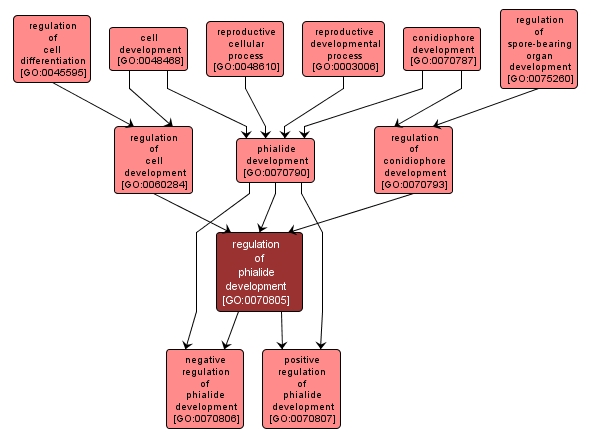GO TERM SUMMARY
|
| Name: |
regulation of phialide development |
| Acc: |
GO:0070805 |
| Aspect: |
Biological Process |
| Desc: |
Any process that modulates the frequency, rate or extent of phialide development, a process that leads to the formation of phialides. Phialides are specialized cells that bud from the ends of metulae on the conidiophore tip. |
|

|
INTERACTIVE GO GRAPH
|














